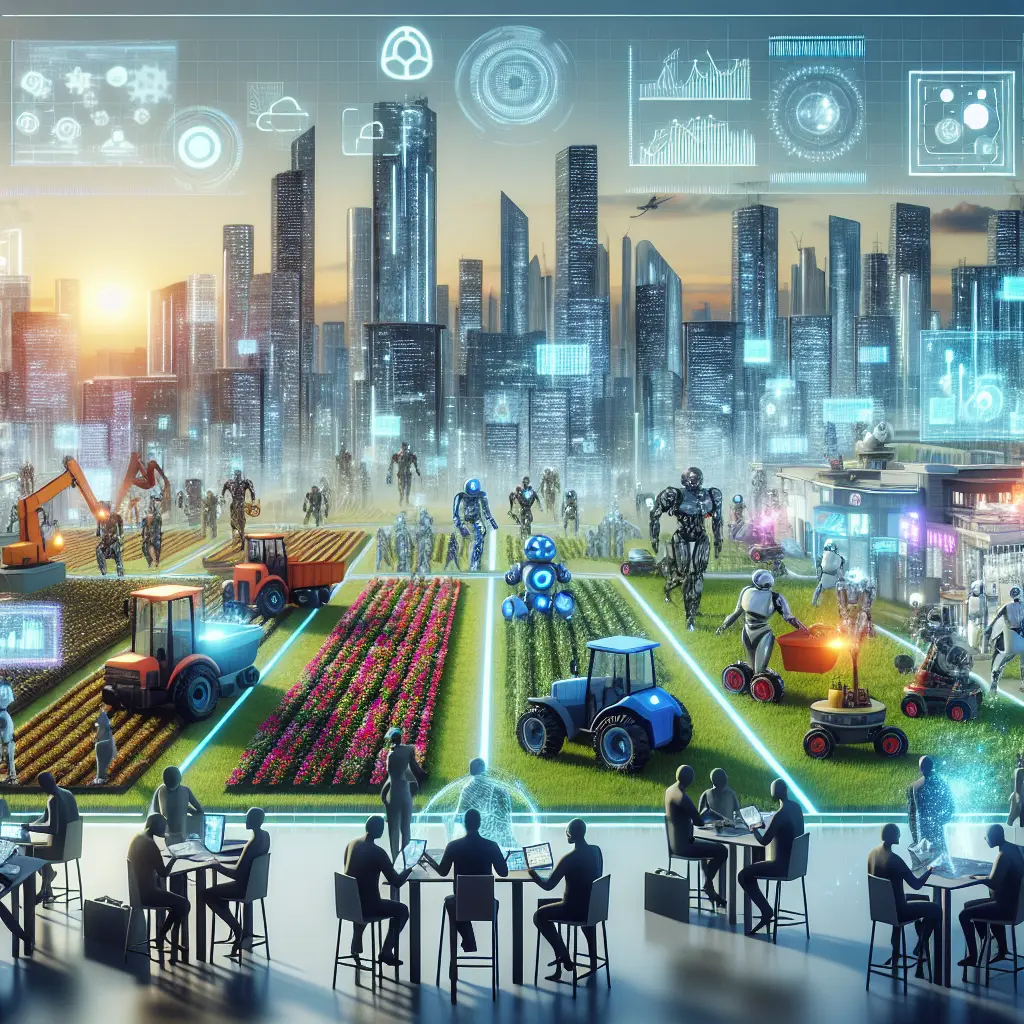
As the world accelerates into the digital age, AI-driven automation is poised to redefine the landscape of employment. This technological evolution presents a dual-edged sword—ushering in unprecedented efficiencies while simultaneously reshaping the traditional job market. The future of employment is deeply intertwined with the impact of AI on jobs, as industries grapple with the balance between automation and job market dynamics.
AI in the Workplace: A New Reality
AI in the workplace is no longer a distant prospect but an imminent reality, promising to transform workforce trends and alter the very fabric of our professional lives. The discourse surrounding AI and employment opportunities is nuanced, exploring both the potential for AI job creation and the looming specter of automation and job displacement. As we stand on the cusp of a new era, technology and employment are inextricably linked, demanding a reevaluation of skills and roles in this rapidly evolving landscape.
The Promise and Peril of AI in the Workplace
AI's integration into the workplace heralds unprecedented efficiencies and opportunities for innovation. However, it also brings the potential for widespread automation and job displacement. According to a recent report on Forbes, industries are experiencing a transformative shift as AI technologies streamline processes and enhance productivity. Despite these advancements, there is a palpable fear of job losses, particularly in sectors heavily reliant on routine tasks.
Is Universal Basic Income a Viable Solution?
The prospect of automation-induced unemployment has reignited discussions around Universal Basic Income (UBI). Proponents argue that UBI could provide a safety net for workers displaced by technology, ensuring economic stability as industries undergo transformation. In a recent article by The Guardian, experts explore whether UBI can truly compensate for the disruption caused by AI. Critics, however, question its feasibility, pointing to financial constraints and potential societal implications.
Navigating an Oversaturated AI Market
The AI landscape has become increasingly competitive, with startups vying for a foothold in a crowded market. As reported by TechCrunch, differentiation is crucial for survival. Startups must leverage unique value propositions to stand out amidst fierce competition. Those that successfully integrate AI into practical applications, providing tangible benefits to clients, have the best shot at thriving.
Regulatory Challenges: The European Perspective
Regulatory frameworks play a pivotal role in shaping the trajectory of AI technologies. In Europe, stringent regulations are impacting big tech companies' willingness to release AI products. Meta's decision to follow Apple's lead by withholding AI tools in EU countries reflects growing apprehension about regulatory compliance (Reuters article).
Venture Capital's Changing Landscape
The venture capital (VC) sector has experienced significant upheaval over the past two years. As noted by Business Insider, frustrations within the industry are mounting due to challenges in raising funds and achieving favorable valuations. This evolving landscape presents both obstacles and opportunities for AI startups seeking investment.
Embracing AI Workforce Transformation
The future of work with AI extends beyond mere job replacement; it encompasses a comprehensive workforce transformation. Organizations must adopt strategic approaches to skill development, preparing employees for new roles that leverage AI's capabilities. As demonstrated by Coursera's integration of GenAI into educational offerings, continuous learning and adaptation are essential.
Conclusion: Charting a Path Forward
As we stand on the precipice of an AI-driven future, it is imperative to address the complex interplay between automation and economic impact. Rather than viewing automation as synonymous with job loss, we must explore avenues for innovation and AI-driven employment opportunities that redefine our perception of work.
By fostering collaboration between technology developers, policymakers, and educators, we can create a resilient workforce capable of adapting to change. The journey ahead requires thoughtful navigation, balancing the promise of AI with its potential challenges to ensure a prosperous future for all.
In summary, AI-driven automation is not merely about transforming technologies but reshaping our economic landscapes and societal structures. The future of employment hinges on our ability to adapt, innovate, and embrace the opportunities that lie ahead.
I encourage you to reflect on how these changes might affect your industry and explore ways to embrace AI's potential. Share your thoughts and experiences in the comments below—your insights are invaluable as we navigate this evolving landscape together.
Let’s continue this journey with open minds and innovative spirits, ensuring a prosperous future for all in the AI-driven world.
Author: Clara Fitzgerald